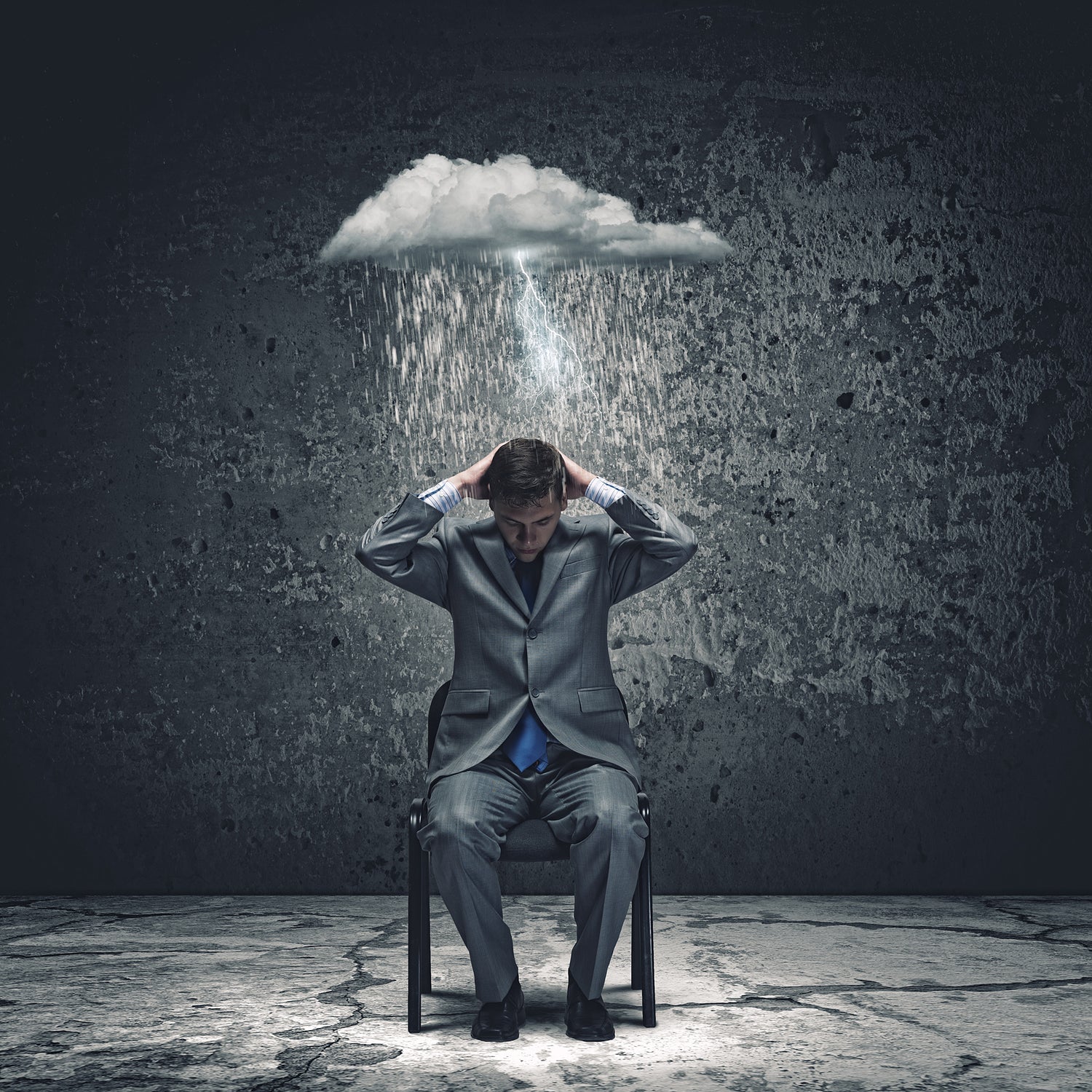
We're All Stressed - Can CBD Help?
Financial constraints, toxic relationships, fear of failure, and insecurity in an uncertain world are just a few of the challenges that can keep us on edge.
Unchecked, stress can lead to heart disease, high blood pressure, stroke, weight gain, digestion problems, and sleep deprivation! Cannabinoids, like CBD, are becoming mainstream as research increasingly finds more and more beneficial use.
Its medicinal properties are undeniable when we look at its positive relationship with epilepsy and pain management. Today, millions around the world are turning to CBD in an effort to manage stress, anxiety, and PTSD... Can CBD help with stress? Preclinical evidence says in can!

Can CBD Help With PTSD?
PTSD is a condition in which an individual has difficulties recuperating after experiencing or witnessing a distressing incident. Often PTSD can persist for months or years, with stressors invoking memories of the experience and causing extreme emotional and physiological responses.
Symptoms may include nightmares or intrusive flashbacks of the trauma, avoidance of situations that trigger memories of the trauma, heightened reactivity, anxiety, or depression.
Treatment includes several types of trauma-focused psychotherapy as well as medications that treat symptoms, and CBD has shown significant promise!
Now preclinical evidence, exists demonstrating CBD's usefulness in lowering anxiety and stress in a range of illnesses, including PTSD, GAD, Parkinson's disease, OSD, and SAD.
If you're dealing with any of these stress-related concerns and need relief quickly, we recommend reviewing our results on the best CBD brands for anxiety and stress, then giving CBD a shot. We believe you'll find CBD to be a great stress-relieving solution!

CBD Dosage Calculator & Chart
Get It Right The First Time!
The more you understand, the more likely you are to have a positive experience with CBD. Use our CBD calculator and/or our CBD chart to get the most out of your CBD purchase.
CBD Stress & Anxiety Articles
Cannabidiol as a Potential Treatment for Anxiety Disorders
We found that existing preclinical evidence strongly supports CBD as a treatment for generalized anxiety disorder, panic disorder, social anxiety disorder, obsessive-compulsive disorder, and post-traumatic stress disorder when administered acutely; (short-term high-level dose)... See The Review
Use of CBD for the Treatment of Patients With PTSD
Cannabinoids have been shown to be an effective treatment option for patients with PTSD.
Besides aiding to relieve the symptoms and enhance extinction training, they also are relatively well tolerated. Common adverse effects included light-headedness, forgetfulness, dizziness, and headaches.
Effects of THC and CBD on Aversive Memories and Anxiety.
Current evidence from healthy humans and PTSD patients supports the THC value to suppress anxiety and aversive memory expression without producing significant adverse effects if used in low doses or when associated with CBD.
Future studies are guaranteed to address open questions related to their dose ratios, administration routes, pharmacokinetic interactions, sex-dependent differences, and prolonged efficacy.
Reasons for Cannabidiol Use.
A cross-sectional study of CBD users, focusing on self-perceived stress, anxiety, and sleep problems.
Younger individuals had odds of using CBD for general health and well-being, stress, post-workout sore muscles, anxiety, skin conditions, focusing, and sleep.
Respondents reported that CBD use was effective for stress, sleep problems, and anxiety in those who used the drug for those conditions.
Enhancing Endocannabinoid Control of Stress with Cannabidiol
There is substantial clinical evidence that CBD safely and effectively constrains the stress response. There have been seven double-blind placebo controlled clinical trials of CBD for stress [8,27,28,94,95,96,97] on a combined total of 232 participants and one partially controlled study on 120 participants.
All showed that CBD was effective in significantly reducing the stress response and its manifestations (anxiety, fear, depression, and burnout).

